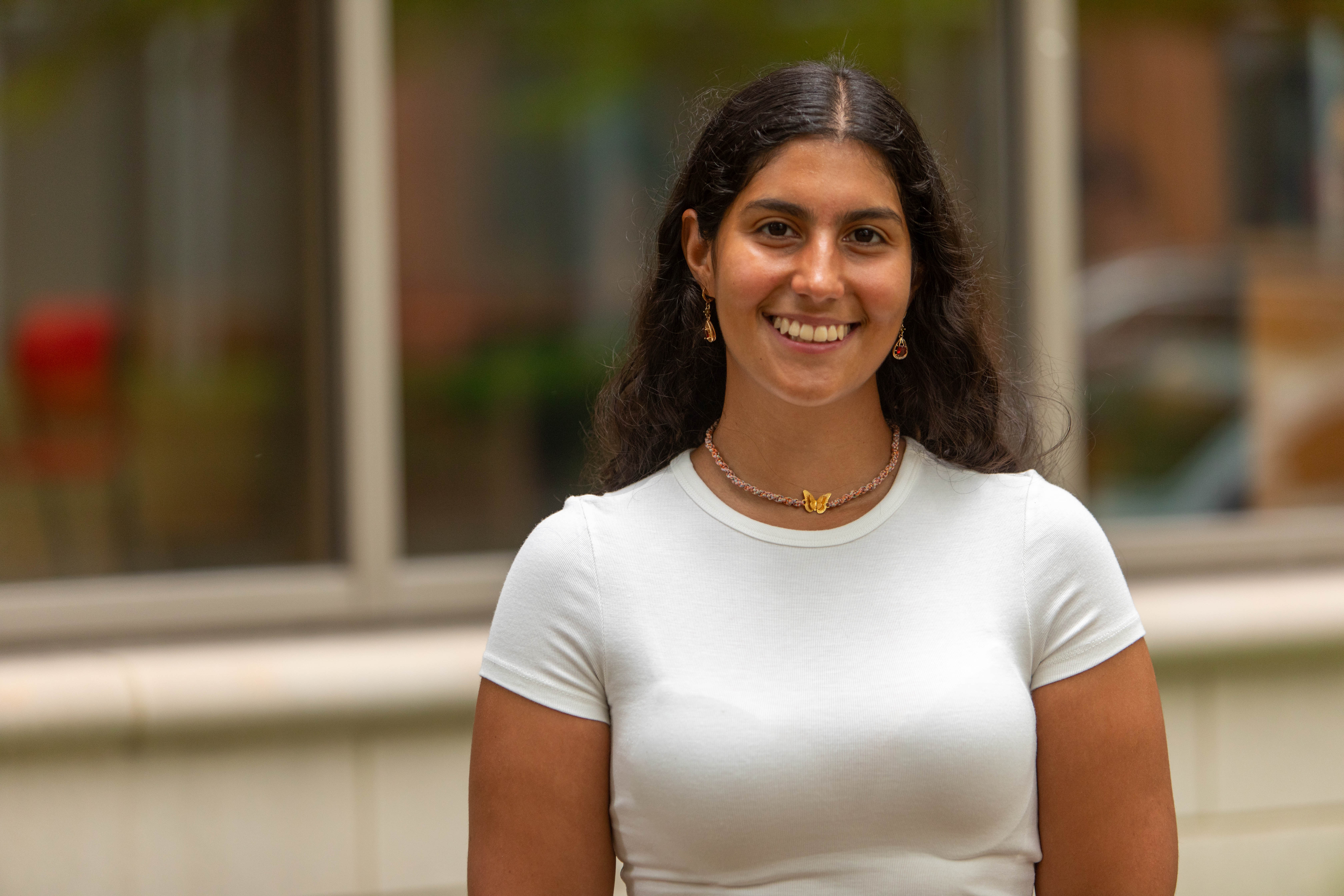 Juliana Zanubi (Photo by Keeton Holder/DePaul University)
Juliana Zanubi (Photo by Keeton Holder/DePaul University)
Juliana Zanubi, College of Liberal Arts and Social Sciences
Degree: Bachelor of Arts in International Studies
Hometown: Cali, Colombia
Why did you choose your area of study?
My mom is from Colombia and my dad is from Iran. I grew up not just speaking two languages but understanding why my parents and their families were so different from each other. My mom made sure I grew up in a diverse environment and met people from different places and backgrounds.
International studies helped me understand that the issues that we have in the United States are not so different than those faced by other countries around the world, and they are all interconnected.
In the end, humans have the same needs, and international studies allowed me to see the bigger picture. It was a way to step back and see what connects different countries and what we can all learn from each other. For example, homelessness is an issue in Chicago, but when you step back you realize there’s also a housing crisis all around the world. This is a global thing. Then you can look at how another country is solving the issue. What can we learn from them?
What was the most impactful class you’ve taken at DePaul?
In the Spring of 2021, during Covid, I was taking a class called “International Movements and Social Change.” I was in Colombia when a tax reform was introduced, and a national social movement started. My mom and I left the city while the strike grew. The supermarkets were empty. The roads were completely blocked. There was no way to get food from the farms to the cities, so people were hungry. We were studying international social movement theory in class, while I was living it.
My experience became a key part of the class. The first 10 minutes of class, they always asked me: “How is it going? How's the situation?” We used the class theory to make sense of what was going on in Colombia. Meanwhile, the situation was getting more tense every day. In that class, I experienced that the university is a place to make sense of the world, not just to learn about historical events and hypothetical scenarios. Those are important, but when there's something going on right here, right now, the university can help figure out how to address it, or at least understand it. It ended up being a good learning experience for everyone.
How have you connected with the DePaul community during your time here?
Being a part of the cultural organizations helped me find community. Getting involved with organizations like Tepeyac, Mesa, and Zaid was very meaningful. I had a lot of fun in their meetings. We shared a lot of culture and memories through participating in events and dances. It made me feel more at home. Some people think that all Latin Americans eat tacos and listen to Banda. You simply cannot find a good taco in Cali. So, participating in those organizations was fun and fulfilling, and helped me show and see a more diverse picture of Latin America.
What are your plans after graduation?
I am an intern at two nonprofits working with youth and gun violence prevention, democracy protection, and voting rights. I gained a lot of experience in education at DePaul as a Chicago Quarter Mentor and a HumanitiesX Fellow. I know how important youth empowerment is and I see how it changes lives, so I’d like to connect that to my current work.
Then I’d like to take all that experience and put it into an international organization. I was also recently accepted into DePaul’s master’s program in applied diplomacy. It focuses on all groups at work and uses up-to-date practices and understanding of diplomacy, which will prepare me to kickstart a career in international affairs.
Any advice for incoming students?
Learn from faculty and ask them questions. Ask about their journeys, their opinions, and what they do. Attend social events, of course, but DePaul also hosts many important talks and conferences that are very enriching. Take advantage of all the resources and ability to be exposed to different cultural organizations. Maybe attend an event by a group that you don't identify or agree with. Just keep an open mind and try to make friends with, or at least engage with, people of all backgrounds. There are so many resources, so take advantage of them. There are infinite opportunities for growth and learning, you just need to find them.
Jade Walker is a student assistant of media relations and communications in University Communications.